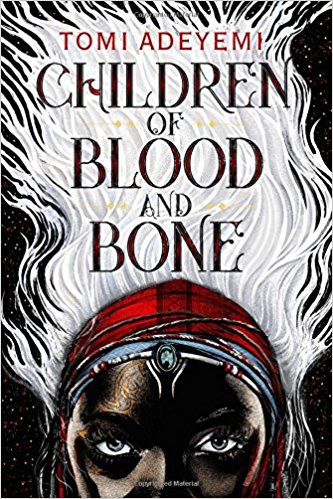 There’s a lot of hype surrounding this book (for instance, I saw Entertainment Weekly called Adeyemi the next J. K. Rowling). Hype can be both good and bad. It had a lot to live up to, but I was still excited to read it, even though it’s way longer than my normal reads.
There’s a lot of hype surrounding this book (for instance, I saw Entertainment Weekly called Adeyemi the next J. K. Rowling). Hype can be both good and bad. It had a lot to live up to, but I was still excited to read it, even though it’s way longer than my normal reads.
If you haven’t already heard about it, Children of Blood and Bone is an epic fantasy with all the elements you’d expect—magic, sword fights, magical artifacts, and an epic journey—but it’s set in a world inspired by Nigeria and West African legends. It’s a story of oppression, unjustified violence, class, and privilege—and it’s cast is entirely black. Eleven years before the book opens, the king of Orïsha killed all the maji (people who could use magic) in the Raid. He also did something that destroyed the ability to do magic, but he let divîners live. Divîners are children who will become maji when they reach the age of thirteen, but now that magic is suppressed, they won’t. Divîners and maji both are marked with white hair so it’s instantly clear who they are. The divîners who survived the Raid are treated very badly (this is a significant understatement) and called “maggots” as the slur of preference.
The book features three teenage characters who all have POV chapters: Zélie, Amari, and Inan. Zélie’s the main star, being a divîner and effectively chosen by the gods for the book’s important quest. Amari is the kingdom’s princess and Inan is her older brother. Amari sees her best friend killed by her father for no good reason. She flips out, steals a magic scroll, and flees. Poor Zélie is the one she runs into and who helps her escape. Prince Inan is sent to retrieve Amari, with instructions to bring her back alive—unless people find out what she did. Once Zélie and Amari (plus Zélie’s brother Tzain) reach Zélie’s village, they learn that there is a way to bring magic back to the land. Thus begins the quest. The three of them head out, with Inan on their heels the whole time.
The book’s very well-plotted and pacing is good. In my view, quest books frequently end too rapidly. This one moved quickly at the end, but it didn’t wrap things up prematurely. The ending was very satisfying.
All three main characters are amazing—they’re multi-dimensional and well-developed, with each of them changing dramatically over the course of the book. Their emotional journeys are all interesting and deeply-felt. Zélie’s brother is the fourth major character and while he doesn’t change as much as the others, he’s still important to their character arcs.
Then, the world building is fantastic. The magic system is unusual (at least in my experience) and well-explained. I loved that the language of magic in Orïsha is Yoruba, a real language native to Nigeria. I also appreciated all the slightly gratuitous diacritics on so many of the place names and magic-related words. And they ride giant cats. Cats!
I do have one complaint about the book, but it only detracts from the full reading experience a tiny bit. That is that a lot of the conflicts are resolved to easily and quickly. Some terrible obstacle would be thrown in their path and then some solution would appear. For instance, when they’re needing to charter a boat to an island at one point, they have to convince the captain of a ship to do it for no money. I didn’t 100% buy his fast acquiescence.
Despite that, it’s an excellent book that you should seriously consider reading. YA fantasy lovers should definitely love this one, but I think it’s fresh and engaging enough that even those who don’t read that should enjoy it. I’m definitely watching for the sequel.
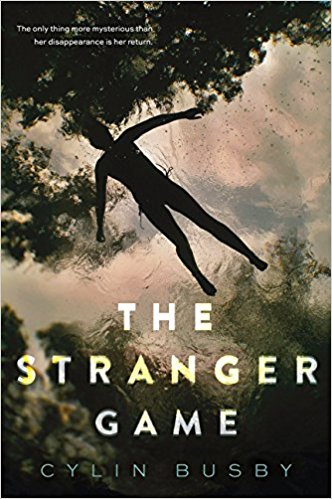 I was excited to read this book, as it sounded like a nice psychological thriller, a genre I enjoy but don’t read much of. Nico Morris’s older sister, Sarah, disappeared four years earlier when she was fifteen and Nico was eleven. And now she’s back.
I was excited to read this book, as it sounded like a nice psychological thriller, a genre I enjoy but don’t read much of. Nico Morris’s older sister, Sarah, disappeared four years earlier when she was fifteen and Nico was eleven. And now she’s back.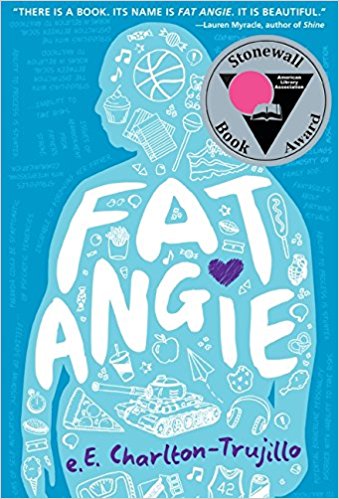 I’ll start off by saying that this is an unusual book. This is mostly because of the point of view, which I’ll go into more below.
I’ll start off by saying that this is an unusual book. This is mostly because of the point of view, which I’ll go into more below.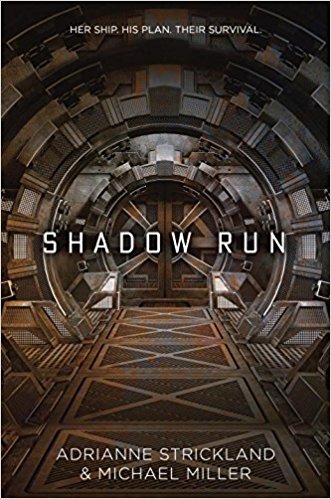
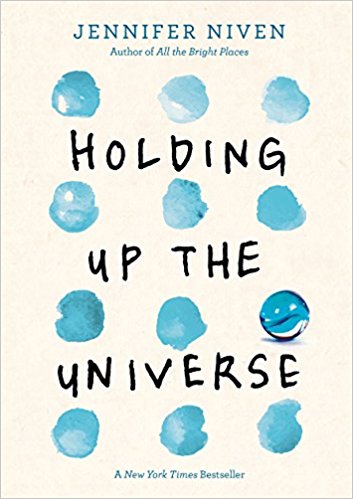 Niven’s other YA book, All the Bright Places, is probably going to remain one of my favorite YA novels of all time. So Holding Up the Universe had a lot to live up to, for me.
Niven’s other YA book, All the Bright Places, is probably going to remain one of my favorite YA novels of all time. So Holding Up the Universe had a lot to live up to, for me.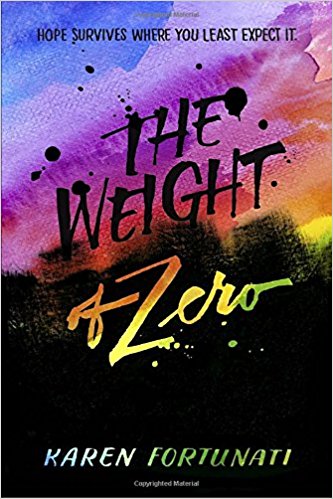 There has been a lot of books about mental illness coming out lately, which I think is great as long as the author handles it carefully. The Weight of Zero is definitely a standout in the crowd of these books for its authenticity and solid story.
There has been a lot of books about mental illness coming out lately, which I think is great as long as the author handles it carefully. The Weight of Zero is definitely a standout in the crowd of these books for its authenticity and solid story.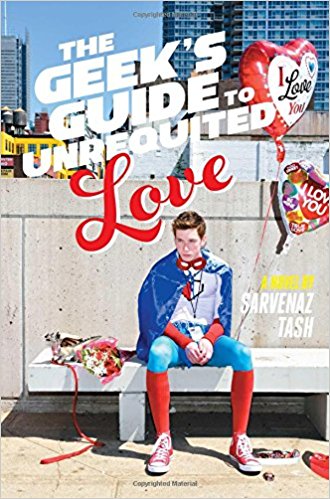 Who knew you could write a book set almost entirely at a comic con? Apparently you can because Tash managed it.
Who knew you could write a book set almost entirely at a comic con? Apparently you can because Tash managed it.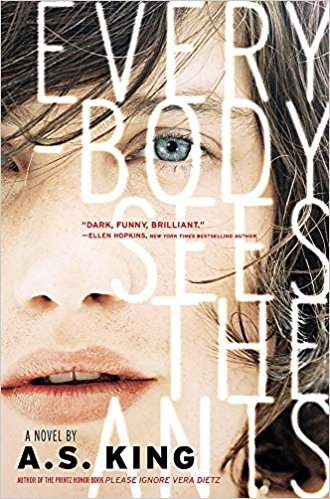 Everybody Sees the Ants is outwardly about bullying, but it’s really about many things, including masculinity, self-respect, and standing up for yourself. It’s really creative and like many of King’s books, has more than a touch of magical realism.
Everybody Sees the Ants is outwardly about bullying, but it’s really about many things, including masculinity, self-respect, and standing up for yourself. It’s really creative and like many of King’s books, has more than a touch of magical realism.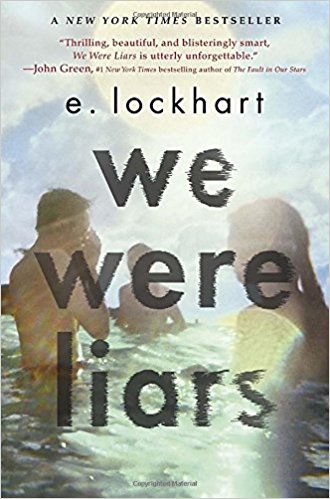 Lockhart is definitely a writer I admire, and one of the things I like most about her is the fact that she is so versatile. All her books (or series, at least) are so different from each other. That’s some skill.
Lockhart is definitely a writer I admire, and one of the things I like most about her is the fact that she is so versatile. All her books (or series, at least) are so different from each other. That’s some skill.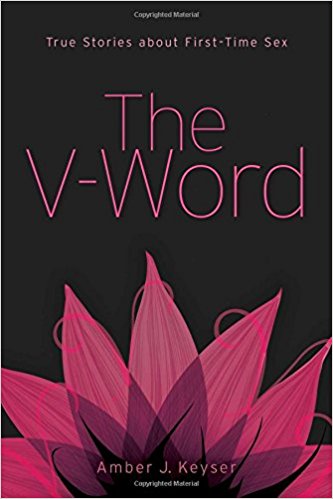 The V-Word is a collection of writing about real first-time sexual experiences. It’s not even specifically YA, though it will definitely be of interest to a lot teenagers. Everyone wants to know what it’s like, after all, even if they’re not intending to find out from personal experience any time soon.
The V-Word is a collection of writing about real first-time sexual experiences. It’s not even specifically YA, though it will definitely be of interest to a lot teenagers. Everyone wants to know what it’s like, after all, even if they’re not intending to find out from personal experience any time soon.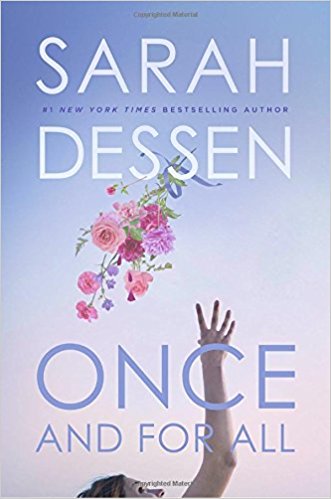 Dessen is one of my favorite YA authors because she paints such realistic teens. Yes, they’re white and usually reasonably well off with mostly functional families around them. But still, she digs deep into their lives and makes even an average girl interesting.
Dessen is one of my favorite YA authors because she paints such realistic teens. Yes, they’re white and usually reasonably well off with mostly functional families around them. But still, she digs deep into their lives and makes even an average girl interesting.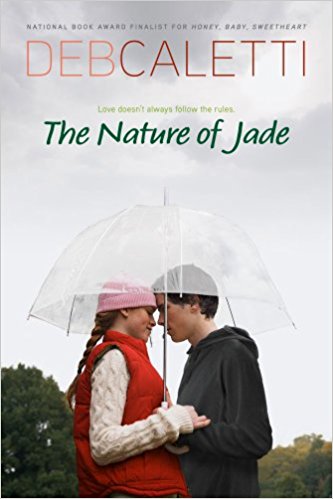 I always like a good book that deals with mental health issues, as long as it does so realistically and non-preachily.* The Nature of Jade fits the bill.
I always like a good book that deals with mental health issues, as long as it does so realistically and non-preachily.* The Nature of Jade fits the bill.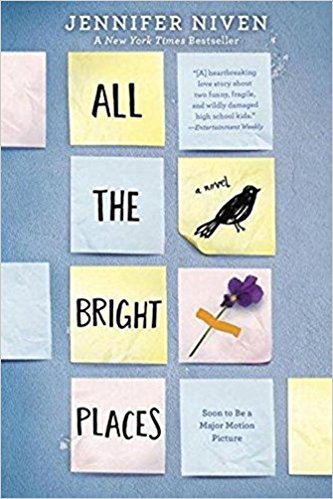 All the Bright Places sort of destroyed me for a day, it was so emotionally demanding. I mean, the story took me through the wringer and once I’d finished it, I couldn’t stop thinking about it and reliving the emotions I’d felt while reading it. I came to the book without being aware of the hype and the comparisons to Eleanor and Park and The Fault in Our Stars. Despite that, Eleanor and Park was exactly the book it made me think of, not because of the story, but because of the emotional depth and the journey it took me on.
All the Bright Places sort of destroyed me for a day, it was so emotionally demanding. I mean, the story took me through the wringer and once I’d finished it, I couldn’t stop thinking about it and reliving the emotions I’d felt while reading it. I came to the book without being aware of the hype and the comparisons to Eleanor and Park and The Fault in Our Stars. Despite that, Eleanor and Park was exactly the book it made me think of, not because of the story, but because of the emotional depth and the journey it took me on. This book distressed me. Probably not in what could be said to be a good way, but in the right way (the way it was intended to).
This book distressed me. Probably not in what could be said to be a good way, but in the right way (the way it was intended to).